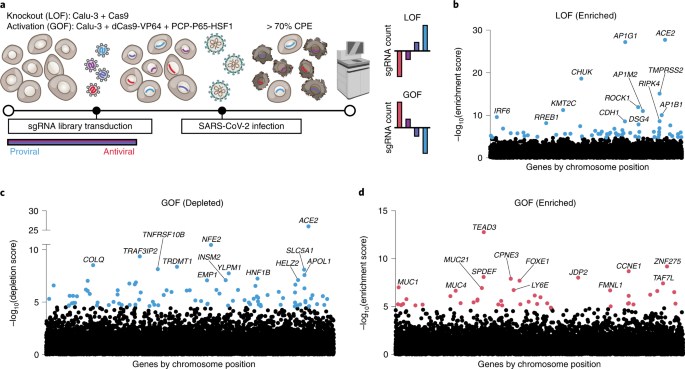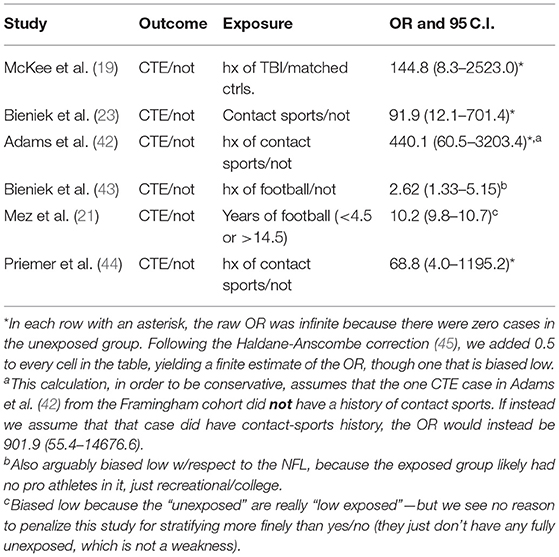022-07-26 カリフォルニア大学バークレー校(UCB)
研究者らがCRISPR技術を用いて、ヒトの肺細胞におけるあらゆるヒト遺伝子がSARS-CoV-2感染に与える影響を検証しました。その結果、ウイルスが細胞に感染する際に依拠する新たな経路と、ウイルス感染から身を守るための抗ウイルス経路が明らかになった。特に注目すべきは、ムチン(肺の粘液の主成分)が、SARS-CoV-2ウイルスの細胞への侵入を阻止するのに役立つと思われることを示したことです。
肺の細胞膜に存在するムチンの一種であるMUC1とMUC4が、肺細胞を感染から守ることを発見した。以前の研究では、COVID-19で重症化する人がいるのは粘液の蓄積が原因である可能性が示唆されており、粘液を減少させる薬剤の使用が提案されていたため、この発見は重要である。
研究者らは、肺の粘膜に分泌される他のムチン-MUC5ACとMUC5B-が、SARS-CoV-2感染を何も阻止しないか、あるいはウイルス感染を促進することさえあることを発見した。
<関連情報>
- https://engineering.berkeley.edu/news/2022/07/berkeley-led-study-identifies-human-lung-proteins-that-can-advance-or-thwart-covid-19-infections/
- https://www.nature.com/articles/s41588-022-01131-x
ゲノムワイド双方向CRISPRスクリーニングにより、SARS-CoV-2感染を制御する宿主因子としてムチンを同定 Genome-wide bidirectional CRISPR screens identify mucins as host factors modulating SARS-CoV-2 infection
Scott B. Biering,Sylvia A. Sarnik,Eleanor Wang,James R. Zengel,Sarah R. Leist,Alexandra Schäfer,Varun Sathyan,Padraig Hawkins,Kenichi Okuda,Cyrus Tau,Aditya R. Jangid,Connor V. Duffy,Jin Wei,Rodney C. Gilmore,Mia Madel Alfajaro,Madison S. Strine,Xammy Nguyenla,Erik Van Dis,Carmelle Catamura,Livia H. Yamashiro,Julia A. Belk,Adam Begeman,Jessica C. Stark,D. Judy Shon,Douglas M. Fox,Shahrzad Ezzatpour,Emily Huang,Nico Olegario,Arjun Rustagi,Allison S. Volmer,Alessandra Livraghi-Butrico,Eddie Wehri,Richard R. Behringer,Dong-Joo Cheon,Julia Schaletzky,Hector C. Aguilar,Andreas S. Puschnik,Brian Button,Benjamin A. Pinsky,Catherine A. Blish,Ralph S. Baric,Wanda K. O’Neal,Carolyn R. Bertozzi,Craig B. Wilen,Richard C. Boucher,Jan E. Carette,Sarah A. Stanley,Eva Harris,Silvana Konermann & Patrick D. Hsu
Nature Genetics Published:25 July 2022
DOI:https://doi.org/10.1038/s41588-022-01131-x

Abstract
Severe acute respiratory syndrome coronavirus 2 (SARS-CoV-2) causes a range of symptoms in infected individuals, from mild respiratory illness to acute respiratory distress syndrome. A systematic understanding of host factors influencing viral infection is critical to elucidate SARS-CoV-2–host interactions and the progression of Coronavirus disease 2019 (COVID-19). Here, we conducted genome-wide CRISPR knockout and activation screens in human lung epithelial cells with endogenous expression of the SARS-CoV-2 entry factors ACE2 and TMPRSS2. We uncovered proviral and antiviral factors across highly interconnected host pathways, including clathrin transport, inflammatory signaling, cell-cycle regulation, and transcriptional and epigenetic regulation. We further identified mucins, a family of high molecular weight glycoproteins, as a prominent viral restriction network that inhibits SARS-CoV-2 infection in vitro and in murine models. These mucins also inhibit infection of diverse respiratory viruses. This functional landscape of SARS-CoV-2 host factors provides a physiologically relevant starting point for new host-directed therapeutics and highlights airway mucins as a host defense mechanism.


